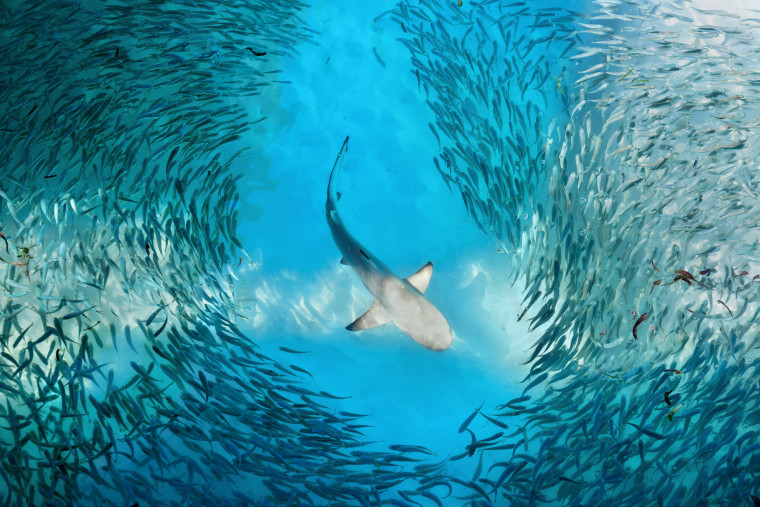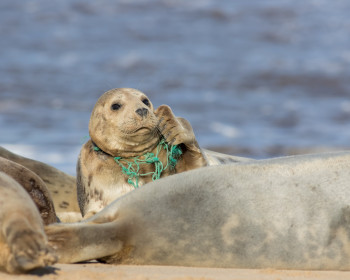Be An Advocate For Sharks On Shark Awareness Day (and Every Day)
Open gallery

As we celebrate Shark Awareness Day, we should reflect both on the majesty of sharks and the critical role they play as apex predators in the ecosystem and on the important role that our laws serve in protecting these creatures. Recently, the U.S. Senate passed the Shark Fin Sales Elimination Act as part of a broader legislative package, the U.S. Innovation and Competition Act. If enacted, this law would close the U.S. market for shark fins—an important regulatory step that buttresses efforts taken by states, such as Oregon, Hawaii, California, New York, New Jersey and others, to ban sales of shark fins.
This recent action builds on several iterative steps to tackle shark finning in U.S. waters and other supply chain issues. Shark finning is the practice of cutting off a shark’s fins and discarding the often still-living shark back into the water to die. In 2000, the U.S. adopted the first shark-specific piece of legislation, prohibiting landing of detached fins unless in compliance with fin-to-carcass weight ratios. This legislation, signed into law by President Clinton, marked an important effort to reduce the horrendous practice of finning sharks at sea and discarding the bodies. In a later move, the U.S. eventually eliminated the ratio scheme, in 2011, meaning that fins must be naturally attached to bodies to land in the U.S. (The 2011 law also eliminated a loophole surrounding the categories of vessels subject to the fin-related prohibitions—a loophole successfully exploited by a fisheries company in United States v. Approximately 64,695 Pounds of Shark Fins, 520 F.3d 976 (9th Cir. 2008).) These efforts, plus the Shark Fin Sales Elimination Act, if adopted, address in a significant way shark finning and consumption in U.S. waters and U.S. markets.
While these laws position the U.S. as a leader of shark conservation efforts on the global stage, they do not tackle in significant measure the global exploitation of sharks for their fins. The practice of shark finning is driven largely by the market for shark fin soup, a luxury food popular in some Asian cuisines. According to Oceana, 73 million sharks annually supply fins to sate this demand. Some portion of these fins transit through the U.S. on their way to these international markets, meaning that the U.S. continues to play a facilitator’s role in the global shark fin trade.
As international efforts to protect sharks from exploitation grow, taking stock of the U.S. role in the movement of shark fins from areas of exploitation to consumer markets is key. Despite some of the strongest wildlife protections in the world, and a recent history of taking actions to protect sharks specifically, U.S. legislation exempts from oversight much of the wildlife that moves through U.S. ports to foreign markets.
Each of us has an important role to play in helping to protect sharks not only on Shark Awareness Day, but throughout the year. A few ideas of ways to take action for sharks include:
- Contact your representatives and ask them to support the Shark Fin Sales Elimination Act. You can find your reprentatives here. Make sure to note that you are a constituent and to reference the senate bill number (S. 1260 at section 2518).
- Share this blog with information about needed legal protections for sharks.
- Educate yourself about shark protections and then ask the public and elected officials to support laws and policies that stop shark finning and other threats to sharks.
- Don’t support businesses that contribute to the suffering of sharks. Do not consume products made with shark fins or patronize restaurants that sell shark fins.
- Donate to Global Law Alliance for Animals and the Environment to support the important work we are doing to protect sharks around the world.
- Check out our soon-to-be released free on demand CLE that outlines the legal frameworks that apply to wildlife transit through the United States and how the regime is fraught with loopholes that allow illegally sourced wildlife, including shark fins and other fisheries products, to move through the United States.



The Center for Animal Law Studies (CALS) was founded in 2008 with a mission to educate the next generation of animal law attorneys and advance animal protection through the law. With vision and bold risk-taking, CALS has since developed into a world-renowned animal law epicenter, with the most comprehensive animal law curriculum offered anywhere. In addition, CALS is the only program that offers an advanced legal degree in animal law (both in person and online) and three specialty Animal Law Clinics. In 2020, CALS launched the Global Law Alliance for Animals and the Environment, as champions for wild animals and wild spaces, in collaboration with Lewis & Clark Law School’s #1 ranked Environmental Law Program. CALS is a fully self-funded nonprofit organization operating under the Lewis & Clark College 501(c)(3) tax-exempt status, and is only able to provide these educational opportunities through donations and grants.
More Center for Animal Law Studies Stories
Center for Animal Law Studies is located in Wood Hall on the Law Campus.
MSC: 51
email cals@lclark.edu
voice 503-768-6960
Center for Animal Law Studies
Lewis & Clark Law School
10101 S. Terwilliger Boulevard MSC 51
Portland OR 97219

